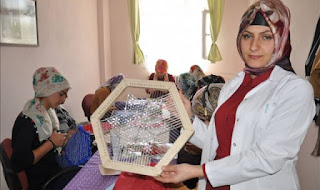Delhi, Haryana not implementing schemes for women properly: High Court
In a recent decision, Justice S. Murlidhar of Delhi High Court has declared that the administration of various scheme for the benefit of underprivileged women and children is being undertaken within Delhi and the State of Haryana in the correct perspective. The High Court concluded that the same was violation of the directions of the Supreme Court and also against the fundamental rights of the petitioners.
The High Court was dealing with writ petitions pointing out deficiencies in the implementation of a cluster of schemes, funded by the Government of India, which are meant to reduce infant and maternal mortality namely the Janani Suraksha Yojana (JSY), the Integrated Child Development Scheme (ICDS), the National Maternity Benefit Scheme (NMBS), the Antyodaya Anna Yojana (AAY) and the National Family Benefit Scheme (NFBS).
The High Court took note of and examined the intent behind the formulation and working of these schemes in particular which in brief can be noted as under;
- The Janani Suraksha Yojana (JSY) is a safe motherhood intervention scheme under the National Rural Health Mission ('NRHM') implemented with the objective of reducing maternal and neo-natal mortality by promoting institutional delivery among the poor pregnant women.
- The National Maternity Benefit Scheme (NMBS) basically talks of providing cash assistance of Rs.500 to pregnant women.
- The objectives of the Integrated Child Development Services (ICDS) Scheme, which was launched in 1975, are: 1. to improve the nutritional and health status of children in the age-group 0-6 years; 2. to lay the foundation for proper psychological, physical and social development of the child; 3. to reduce the incidence of mortality, morbidity, malnutrition and school dropout; 4. to achieve effective co-ordination of policy and implementation amongst the various departments to promote child development; and 5. to enhance the capability of the mother to look after the normal health and nutritional needs of the child through proper nutrition and health education.
- A central feature of the Antyodaya Anna Yojana (AAY) is the provision of rations up to 35 kgs which would include grains and nutritional supplements.
- The National Rural Health Mission (NRHM) was launched on 12th April 2005, throughout the country, with an objective to reduce the Maternal Mortality Rate, the Infant Mortality Rate and the Total Fertility Rate.
Examining the factual scenario relating to the implementation of the schemes by the two governments and finding them short of the desired mandate, the High Court issued the following directions as corrective measures;
63. There are certain general directions which also become necessary to be issued. It is made clear that these directions are only to further effectuate the mandatory orders already issued by the Supreme Court from time to time in W.P. (C) No. 196 of 2001 relevant portions of which have already been extracted hereinbefore. These directions are necessary to ensure that the benefits under the various schemes are not denied to the beneficiaries and that assistance is provided promptly at the nearest point where it can be accessed.
64. The health departments of the GNCTD and the State of Haryana will devise formats of registers to be maintained by Medical Officers who are supervising the work of ANMs and the ASHAs. Each ASHA will maintain a proper log of all her visits and have a checklist of the various benefits to be given in terms of the service guarantees of NRHM including ante natal care, essential and emergency obstructive services, referral services, post natal care, child health, family planning and contraception. Each of the visits by an ASHA to a woman during pregnancy and thereafter will be countersigned by an ANM and periodically at least once in 10 days be checked also by the MO.
65. Every ASHA/ANM will report to the MO if any beneficiary is declining the assistance provided or refusing to take medicines or is reluctant to go in for institutional delivery. The MO will then either undertake a personal visit to the woman concerned or issue necessary instructions for further counseling such woman and make a special note thereof in her record. At the District level and thereafter at the State level there must be a periodical review of the performances of the ASHAs and ANMs, district wise. It must be ensured that the cash assistance under the various schemes including the JSY and NMBS is promptly provided to each beneficiary.
66. A review be undertaken of the issuance of AAY card in terms of the orders of the Supreme Court. It should be ensured that every eligible person/family/child is granted the benefit under the AAY.
67. Likewise, there should be a constant review and monitoring under the ICDS as well. This will involve setting up of the Aanganwadi Centers in terms of the directions by these two states for themselves.
68. Ideally special cells have to be set up within the health departments of the Central and State Government for monitoring the implementation of the schemes on a regular basis.
69. The Government of India on its part will immediately issue a corrective to the earlier instructions issued in October 2006 in relation to the JSY as well as instructions relating to the cash assistance under the NMBS so that it is not denied to any woman irrespective of the number of live births or age. There shall be strict compliance of the orders of the Supreme Court in this regard


Yorumlar
Yorum Gönder